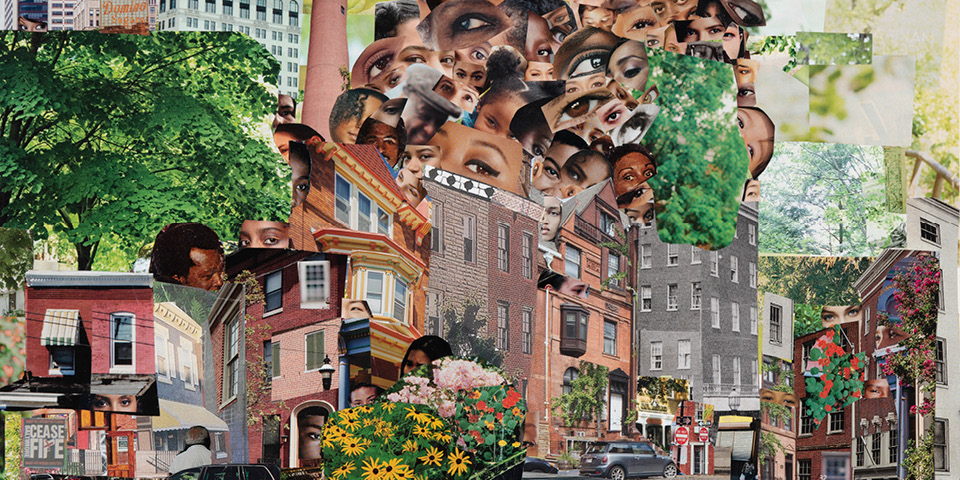
Center Stage | Where We Stand
What makes a community? Reading Donnetta Lavinia Grays’ Where We Stand tacked that demand to the bulletin board in my brain. It’s a question I thought I knew the answer to but on reflection exposes my understanding’ shallowness. Community is one of those words that seems easy to define but which makes me feel like I’m grabbing handfuls of sand when I try to pin it to the page in words. Grays’ play potently identifies this fugitive dilemma: Can we find an us here in these times?
As a journalist, I’ve been reluctantly indoctrinated by the business of journalism into thinking about my audience through every step of the story ideation and storytelling process, asking what a “general reader” does or doesn’t care about, know, or understand. Ostensibly our job is to reach out into the community and tell people about the stories they care about, or should be caring about. But an “audience” isn’t quite the same as a community, is it? And my life experience may give me a different idea of who the general reader is than the one calculated into existence by readership data that suggests who is and isn’t a reader.
As an arts journalist I’ve sat in rooms as organizations, institutions, experts, and philanthropists talk about who their communities are and how to reach and engage them better. The local community. The Black community. The LGBTQ+ community. Sometimes that process can feel like people throwing good ideas after bad without asking anybody from those communities to participate in the discussion.
And that’s the unanswered question of being an American, isn’t it? Identifying who we are when so many of us aren’t involved in the what we do. Our country’s proverbial melting pot means many of us grow up hyphenated. We’re African-American, Mexican-American, Asian-American, gay American, trans American, disabled American, dyslexic American. We’re working-class American, first-generation-to-go-to-college American. We’re undocumented American, immigrant American, refugee American. We’re members of various American communities whose Americaness needs to be qualified
We’re certainly wrestling with understanding community now that we’re navigating a global pandemic. Almost daily we learn just a little bit more about how so many of our different communities are or aren’t responding to this crisis. There’s updates about who is at risk, who is essential, who is living, who is infected, who is dying.
Early on in Gray’s play, the Man character notes that “it’s funny what makes people finally see you.” That “funny” bounces between the comedic and the tragic, and Gray’s writing throughout Where We Stand coils rhythm, ideas, and language into storytelling’s fundamental DNA. It’s the human voice as existence’s internal soundtrack: Think the terrible beauty of Gayl Jones’ novel Corregedora, or singer Jeanne Lee’s spoken word “Blasé” on saxophonist Archie Shepp’s 1969 album of the same name. The past gets summoned into the present by a voice’s insistence, asking us to reconsider the hows and whys of what know.
And for me, Where We Stand is making me reconsider the question of community. It is something that we can’t do alone in our heads. It’s more intimate, more personal, more social, and more vital, and nobody can do it alone. But trying to define that word, however much we try and fail to do so, is more pressing and necessary than we imagine. It’s the effort that goes into recognizing who gets to count as we.

Bret McCabe has been an arts and culture reporter, critic, and a freelance features writer and editor for more than 20 years. His work has appeared in the Baltimore City Paper, Dallas Observer, BmoreArt, Fort Worth Star-Telegram, among other magazines, newspapers, and websites. He was a 2010 finalist for the Nieman Foundation for Journalism Arts & Culture Fellowship and a 2010 fellow at the NEA Arts Journalism Institute in Classical Music and Opera at Columbia University. He is the senior humanities writer at the Johns Hopkins Magazine.



